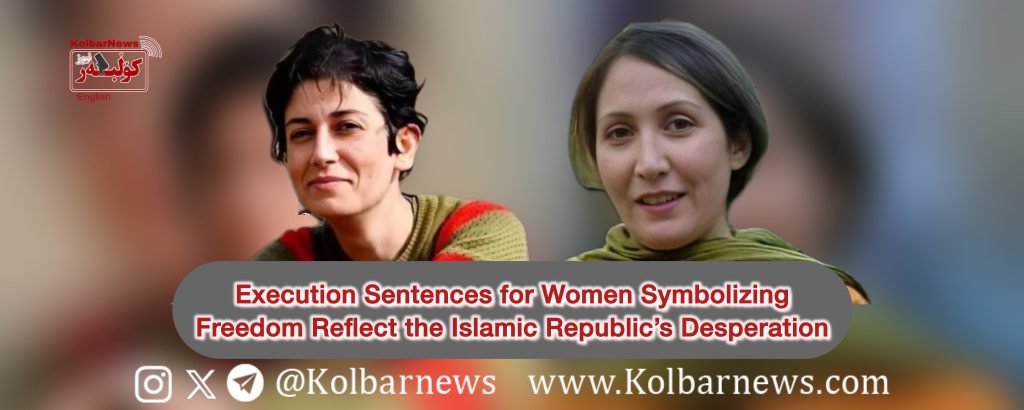
The judiciary of the Islamic Republic has sentenced Pakhshan Azizi, a women’s rights activist and social worker in Kurdistan, to death, following the earlier death sentence of Sharifeh Mohammadi, a labor activist in Gilan.
Pakhshan Azizi, an educated social worker and political activist from Mahabad, was first arrested on November 16, 2009, during a student protest at Tehran University against political executions in Kurdistan. She was released on bail after four months of detention.
She was arrested again on August 4, 2023, by the Ministry of Intelligence in Tehran and transferred to Ward 209 of Evin Prison. From the beginning of her detention, she was subjected to severe torture to extract forced confessions and comply with the interrogators’ demands. In a letter from prison in July 2024, she wrote: “On the very first day of interrogation, they suggested resolving everything quietly without legal proceedings.”
When she did not comply, she was repeatedly subjected to mock hangings, buried ten meters underground, and then brought back up. Her head was slammed against a chair multiple times. She endured insults, humiliation, and threats to her identity and history, all while in a terrible physical and mental state due to a long hunger strike and five months in solitary confinement, the most horrific white torture.
In the letter, Pakhshan defended her decision to go to Syrian Kurdistan to help refugees and wounded victims of ISIS and other Islamic terrorists, despite the torture and screams of her interrogators: “All my activities and efforts were to serve and fulfill my historical duty to my lived experiences and historical oppressions.”
In her youth, she bravely went to Rojava and devoted her skills and knowledge to aiding the women and men who, with over 13,000 martyrs, fought and defeated one of the most fascistic Islamic terrorist forces, supported by Turkey and Saudi Arabia. She shared her social work expertise with people who established a democratic and eco-friendly self-administration in northern and northeastern Syria, valiantly defending it. This system has become a model admired by freedom seekers and a rich source of experience for political activists worldwide.
In her letter, she wrote: “I firmly believe that the correct path to a democratic society is fundamentally achieved through democratic methods to build an ethical-political community where people discuss and solve social issues themselves. Maximum public participation in solving community problems ensures social cohesion and a way out of crises, leading to a life with science and flags, where the realization of democracy results in freedom.”
After the death sentence for her alleged “rebellion,” her lawyers, Maziar Tatai and Amir Raeisiyan, announced to the media: “Unfortunately, Branch 26 of the Tehran Revolutionary Court has issued a death sentence for Ms. Pakhshan Azizi. This ruling is preliminary, and we are preparing an appeal to challenge it.”
Maziar Tatai, aiming to raise awareness, stated: “Let’s assume a photo exists of the defendant with a weapon in a region attacked by ISIS, suggesting her presence in Syria with a weapon. How can this be considered military action against the Islamic Republic, given there were no Iranian forces in the area during ISIS’s crimes?”
The news of Pakhshan’s baseless death sentence, following Sharifeh Mohammadi’s similar ruling, has provoked widespread anger and hatred in society, heavily reflected on social media. This reality underscores that such sentences are the regime’s revenge against the Zhina Revolution led by women.
Pakhshan’s brother revealed that three other family members were also arrested and imprisoned alongside her death sentence announcement.
Judiciary and prison officials informed Pakhshan of her death sentence on Tuesday while political prisoners in 16 prisons were on a hunger strike against capital punishment, demanding its abolition.
This campaign, which started 26 weeks ago and has gained significant support inside and outside Iran, continues to grow, with political prisoners from five more prisons joining recently.
Undoubtedly, issuing death sentences for Pakhshan and Sharifeh will expand and deepen the anti-execution movement in society. The efforts of outside struggles must curtail the Islamic regime’s control over the lives of imprisoned political detainees.

